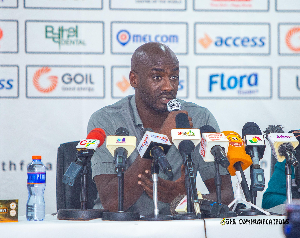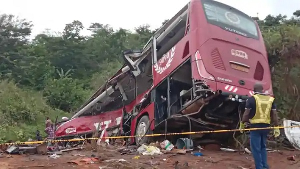Confirmed COVID-19 cases in South Africa have passed the 2000 mark. Figures released on April 10 put the figure at 2003 from 73,028 cases. The death toll has also hit 24 from 18 with 95 recoveries as of April 9.
The country is Africa’s most impacted and the big figures are credited to the rate of testing. Comparatively, most other African countries can only boast of below 10,000 tests as compared to South Africa’s 73,000 plus tests.
President Cyril Ramaphosa announced an extension to the 21-day lockdown announced last month. The two-week extension he says will be critical in containment efforts. The president and his cabinet agreed a salary slash to support the government’s solidarity fund.
The government has gazetted hefty penalties for Kenyans, including a fine of Sh20,000 or a six months’ imprisonment or both if found breaking directives issued in line with the Public Health Act, a top portal Standard Digital has reported.
A Kenya Gazette Supplement No. 41 signed by Health Cabinet Secretary Mutahi Kagwe indicated that failure to wear a mask while using public or private transport and failure to maintain social distance are among the offences that will attract the penalties.
“Users of public or private transport and public transport operators shall wear a proper mask that must cover the person’s mouth and nose and also maintain a physical distance of not less than one metre.”
According to the new rules, organisations, business entities, traders whether in a market or enclosed premises are required to provide at their business location or entrance to their premises, a handwashing station with soap and water or an alcohol-based sanitiser which is approved for use by the Kenya Bureau of Standards.
As at today number of confirmed #COVID19 cases are 2003, the number of tests conducted are 73 028 and the number of deaths is now 24
— Dr Zweli Mkhize (@DrZweliMkhize) April 10, 2020
South Africa cases hit 2000, Africa needs more testing
African officials objected Thursday to the global jostling to obtain medical equipment to combat the coronavirus, warning that if COVID-19 is left to spread on the continent the world will remain at risk.
“We cannot be neglected in this effort,” the head of the Africa Centers for Disease Control and Prevention, John Nkengasong, told reporters. “The world will be terribly unsafe, and it will be completely naive, if countries think they can control COVID-19 in their countries but not in Africa.”
South Africa acknowledged the challenges as it extended its lockdown by two weeks, with President Cyril Ramaphosa saying, “This is a matter of survival, and we dare not fail.”
Equipment in Africa is scarce. The World Health Organization says fewer than 5,000 intensive care unit beds are available across 43 of the continent’s 54 countries: “This is about 5 beds per 1 million people in the reported countries compared to 4,000 beds per 1 million people in Europe.” Functional ventilators in public health services across 41 countries number less than 2,000, a severe shortage for patients in respiratory distress.
While Africa’s 1.3 billion people had a head start in preparing for the pandemic as the virus spread in China, Europe and the United States, Nkengasong warned that “the very future of the continent will depend on how this matter is handled” as cases, now over 11,000, quickly rise.
“The worst is still to come,” he said, and pointed to the global Spanish flu pandemic of a century ago when cases came in waves.
Africa is also competing with the developing world for testing kits that will help give a clear number of cases, as well as protective equipment that front-line health workers desperately require. Already, anxious workers have gone on strike or gone to court in places like Zimbabwe over the lack of gear.
“We may not actually know how big is the size of the problem” without scaling up testing, Nkengasong said.
While 48 of Africa’s 54 countries now have testing capability, that often is limited to countries’ capitals or other major cities, WHO officials told reporters in a separate briefing.
There is an “urgent need” to expand testing, the WHO Africa chief, Matshidiso Moeti, said, noting that clusters of community transmission have emerged in at least 16 countries. That means the virus has begun spreading beyond the initial cases imported from abroad.
“Some countries might face a huge peak very soon” in cases, said the WHO’s emergency program manager, Michel Yao.
Even if testing kits and other equipment are found, another challenge is delivering them amid the thicket of travel restrictions. Cargo space is rare because many airlines have stopped flights to African destinations, Yao said.
Close to 20 African countries have closed their borders, and several are now under lockdown to try to prevent the virus’ spread. Now millions of people are bracing for lockdown extensions after regional leader South Africa’s announcement Thursday night.
If the country’s lockdown ends too soon or too abruptly, “we risk a massive and uncontrollable resurgence of the disease,” Ramaphosa said.
In the two weeks before the lockdown began two weeks ago, the average daily increase in South Africa’s new cases was around 42%, but since the start of the lockdown the average daily increase has been around 4%, he said.
South Africa has the most confirmed cases in Africa with more than 1,900. “We are only at the beginning of a monumental struggle,” Ramaphosa says. “We cannot relax and we cannot be complacent.”
The economic toll, however, has been harsh. The World Bank in a new report said sub-Saharan Africa is expected to fall into recession for the first time in a quarter-century. Growth should fall this year from 2.4% to minus 2.1%, with countries that depend heavily on oil exports and mining hit especially hard.
Africa has had some of the world’s fastest-growing economies. The World Bank said African nations will require a “debt service standstill” and other financial assistance as millions of people, many who survive day-to-day, can’t go out to work.
“I am aware that some of you have been saying, ’We would rather die from COVID-19 than from hunger,” Zambia’s President Edgar Lungu told the nation Thursday. “But I advise you to choose life. Please choose life.”
And, joining a growing number of African nations, he encouraged all Zambians to wear face masks at all times.
In Uganda, 75-year-old President Yoweri Museveni tried to boost morale after outdoor exercise was banned, releasing a homemade video of him running laps barefoot in his office and doing 30 push-ups — proof, he said, that one can stay fit indoors.

















